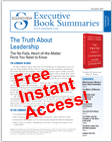The Seven Demands of Leadership七項要求領導
26 Feb 2月 26日
Posted by Travis Wright as張貼查維斯賴特作為 Achievement 成就 , , CEO Training 首席執行官培訓 , , Interpersonal Communication 人際溝通 , , Mentoring 摯友 , , Success 成功
by Dr. John Maxwell 由專家約翰麥克斯韋
An earnest young man once approached me during a Q & A session, and asked, “What is the ONE THING I need to know to be a great leader?” as if he was searching for the hidden key to unlock the universe.一個認真的小伙子曾經找我,在一次答問會,並問: "是什麼一回事,我需要知道它是一個偉大的領袖嗎? " ,因為如果他是搜尋隱藏的關鍵,以解開宇宙。 Amused by the simplicity of his question, my answer was equally simple: “To be a great leader, there’s more than ONE THING you need to know about leadership.”有趣的簡單提問時,我的回答同樣簡單: "是一個偉大的領袖,有一個以上的事是你需要了解的有關領導" 。
Leadership is not easily reduced into a formula.領導是不會輕易降低到一個公式。 However, I understand the urge to try to wrap our hands around effective leadership by breaking it down into a manageable set of principles.不過,據我所知,敦促試圖總結我們的手周圍的有效領導,打破它成為一個可管理的一套原則。 In my research and study of leadership, one of the better simplifications I have found was developed by the team at the Gallup Organization.在我的研究和學習的領導,其中一個較好的簡化,我發現是由團隊在蓋洛普組織。 After conducting extensive research on leaders across a broad spectrum of careers, Gallup boiled down leadership into seven essential qualities.經過廣泛的研究,國家領導人接見全國有著廣譜的職業,蓋洛普歸結領導分為七個必備的基本素質。 Their in-depth study culminated in the article, The Seven Demands of Leadership, appearing in the Gallup Management Journal.他們在深入學習,最後在文章中,由七名要求的領導方式,出現在蓋洛普管理期刊。
In this edition of Leadership Wired, I’d like to review the findings of Gallup’s research, and supplement them with additional thoughts.在這一版的領導有線,我想檢討的結果,蓋洛普的研究,並補充額外的想法。
The Seven Demands of Leadership七項要求領導
1. 1 。 Visioning. 遠景規劃。
The foundation of a vision is reality.該基金會的一個夢想,是現實。 Develop a reality statement before creating a vision statement.制定一個現實的聲明之前,創建一個構想說明。 The reality statement should explain the present situation, the process of pursuing the vision, and the price which must be paid to realize the vision.現實的陳述應解釋目前的情況來看,這一進程的實現抱負,且價格必須支付的,以實現願景。 Be careful not to diminish the vision—it should be bold and daring—but refine the vision until it is realistic and achievable.小心,不要削弱視覺的,它應該大膽勇敢的,但完善的視野,直到它是現實的和可實現的。 A lack of realism in the vision today costs credibility tomorrow.缺乏現實主義的視野,今天的成本公信力的明天。
Leaders take the vision from “me” to “we.” They enlist others in a common vision by appealing to their values, interests, hopes, and dreams.領導把遠景,從"我"到"我們" ,他們借助其他方面的共同願景所吸引,他們的價值觀,利益觀,希望和夢想。 Teamwork makes the dream work, but a vision becomes a nightmare when the leader has a big dream and a bad team.團隊工作,使夢想的工作,而是一種願景變成一場噩夢,當領導人有一個大的夢想,一個壞的團隊。
When we lose sight of the distinction between our plans and the vision we are pursuing, we set ourselves up for a large dose of discouragement.當我們忽略的區別,我們的規劃目標和遠景,我們追求的,我們為自己定下了一個大劑量的勸告。 A vision is a picture of what could and should be.遠景是一幅什麼可以而且應該。 A plan is a guess as to the best way to accomplish the vision.一項計劃,是一個猜想,以最好的方式完成了視野。 Failed plans should not be interpreted as a failed vision.失敗的計劃不應被解釋為是一個失敗的視野。 Visions don’t change, they are only refined.願景,也不會改變,他們只是細化。 Plans rarely stay the same, and are scrapped or adjusted as needed.計劃很少留一樣的,都是報廢或調整後按需要發放。 Be stubborn about the vision, but flexible with your plan.被頑固的視野,而具有彈性的,與你的計劃。
2. 2 。 Maximizing values. 最大化的價值觀。
“By highlighting what is important about work, great leaders make clear what is important to them in life. " ,強調什麼是很重要的關於工作,偉大的領導人作出明確什麼是對他們非常重要的生活情趣。 They clarify how their own values – particularly a concern for people – relate to their work.他們弄清楚如何把自己的價值觀-特別關注的人-涉及到他們的工作。 They also communicate a sense of personal integrity and a commitment to act based on their values.” ~ Gallup Management Journal他們還溝通意識,個人的誠信和承諾,以法為基礎,他們的價值觀" 。 〜蓋洛普管理期刊
A principle is an external truth that is as reliable as a physical law such as the law of gravity.一個原則是一個外部的真理,是可靠的物理法等法律的重心。 When Solomon said, “A gentle answer turns away wrath, but a harsh word stirs up anger,” he stated a principle that is both universal and timeless.當所羅門王說, "是個溫和的回答輪流離憤怒,但一個殘酷的字眼挑起的怒火, "他的一個原則是普遍的和永恆的。 Principles are important because they function like a map allowing us to make wise decisions.原則是重要的,因為它們的功能就像一個地圖,使我們做出明智的決定。 If we ignore them or deny their reliability, we become like travelers refusing to use a road map because we dispute its accuracy.如果我們不理會他們或否認它們的可靠性,我們變得像旅客拒絕使用一張路線圖,因為我們爭端其準確性。
While we may acknowledge the reliability of many principles, we only internalize those we deem important.雖然我們可以承認的可靠性許多道理,我們只是在內部那些我們認為重要的。 When that happens, the principle has become a value that serves as the internal map we use to direct our lives.在此情況下,這一原則已成為一個價值,可作為內部地圖,我們使用以指導我們的生活。 A value, then, is an internalized principle that guides our decisions.一個值,然後,是一個內部消化的原則,是指導我們的決定。
3. 3 。 Challenging Experiences. 富有挑戰性的經歷。
“By galvanizing people with a clear vision and strong values, the leaders we studied were able to challenge their teams to achieve significant work goals. "鍍鋅人民一個清晰的願景和強烈的價值觀,領導我們研究能夠挑戰他們的團隊,以取得重大的工作目標。 In fact, those leaders themselves had been assigned significant challenging experiences at key points in their careers while being given the freedom to determine how they would achieve outcomes.” ~ Gallup Management Journal其實,這些領導人本身已指派重大挑戰的經驗,在關鍵點自己的事業,而獲得自由,以確定它們將如何達成的成果" 。 〜蓋洛普管理期刊
When others run from the challenge before them, leaders rise to the challenge before them.當別人來說,從挑戰面前,領導積極迎接挑戰,在他們的眼前。 English historian Arnold Toynbee has said, “Appropriate response to challenge is the basis for the rise of any society or organization.” A leader’s value to others is to lead them through difficult challenges by providing hope and bestowing courage.英國歷史學家阿諾德湯因比曾表示, "適當的回應挑戰是基礎,為崛起的任何一個社會或組織的"領導者的價值,以他人的,就是要帶領他們渡過困難的挑戰提供了希望和賜予勇氣。
4. 4 。 Mentoring 摯友
“The leaders we studied consistently had a close relationship either with their manager or someone in the best position to advise them. "領袖們,我們的研究始終進行了緊密的關係,無論是與他們的經理或某人處於最佳位置,向他們說明。 This is often someone from outside their organization who serves as their mentor.” ~ Gallup Management Journal這常常是有人從外地組織的人充當他們的導師" 。 〜蓋洛普管理期刊
Relationships define who we are and what we become.關係界定我們是誰和我們成了。 Stick to the confines of self and you’ll remain immature and small.堅持以禁錮自我,你就會相當不成熟和小。 Have the humility to learn from those around you.有謙卑學習,從你周圍。 Identify people’s strengths and uniqueness and inquire about them.鑑定人的優勢和獨特性,並詢問他們。 When learning is your passion and you value people, teachers will crop up all around you.當學習是你的熱情和你的價值的人,老師就會出現在你身邊。
5. 5 。 Building a Constituency 建設一個選區
“Beyond close one-to-one relationships, leaders also create rapport at many levels across their organization and beyond. "超越接近一比一的關係,各國領導人還創造融洽的,多層次的全國組織及以後。 They know the benefits of building a wide constituency…These leaders understand networks and the importance of networking.” ~ Gallup Management Journal他們知道的好處,建立一個廣泛的選區… …這些領袖明白網絡,並建立網絡的重要性" 。 〜蓋洛普管理期刊
Relationships are precious resources, and leaders accumulate social capital.人際關係是寶貴的資源,和領導人的積累社會資本。 As it is said, “Your network determines your net worth.” Networkers share experiences, opportunities, and advice, and they connect relationships.因為它是說, "你的網絡,決定著你的淨值。 "網際網路分享經驗,機會和意見,它們連接關係。 By investing in the well-being of others, networkers naturally earn a return as they benefit from the reciprocated generosity of those they have helped.通過投資於福祉等,網路自然賺取回報,因為他們將從中分享回報的慷慨那些他們有幫助。
6. 6 。 Making Sense of Experience 決策意義上的經驗
“In all their relationships, effective leaders enlighten others because they can make sense of experience.” ~ Gallup Management Journal "在所有的關係,有效的領導開導別人,因為它們能夠使意識經驗" 。 〜蓋洛普管理期刊
Experience is to be cherished and absorbed.經驗,是值得珍惜和吸收。 It comes at a price and once bought, experience should be explored until all its treasure is uncovered.說到當時的價格,一次買了,經驗應該探討,直至其所有的財寶浮出水面。 Experience is not the best teacher—evaluated experience is.經驗是不是最好的教師評價的經驗。 Reflection turns experience into insight.反思輪流經驗轉化為真知灼見。
“When a person with experience meets a person with money, the person with experience will get the money. "當一個人的經驗,適應了人與錢,人的經驗,將會得到錢。 And the person with the money will get experience.” ~ Leonard Lauder, president of Estee Lauder和該人的錢,將得到的經驗" 。 〜萊納德蘭黛總統雅詩蘭黛
7. 7 。 Knowing self 認識自我
“Effective leaders have an acute sense of their own strengths and weakness. "有效的領導有敏銳的意識,自己的長處和弱點。 They know who they are – and who they are not.他們知道他們是誰-他們是誰不是。 They don’t try to be all things to all people.他們不要試圖將所有的東西,所有的人。 Their personalities and behaviors are indistinguishable between work and home.他們的性格和行為是無法區分的工作與家庭。 They are genuine.他們是真實的。 It is this absence of pretense that helps them connect to others so well.” ~ Gallup Management Journal正是這種缺席的幌子,可以幫助他們連接到其他人這麼好" 。 〜蓋洛普管理期刊
Productive leaders have matured to the point of honest self-awareness.富有成效的領導人已經成熟到如此地步的廉潔自律意識。 They couple knowledge with understanding.他們夫婦的知識與理解。 They have resources and means, but their grasp of meaning separates them from the pack.他們的資源和手段,但他們掌握的意義政企分開,他們從包。 They have know-how, but more importantly they know why.他們有訣竅,但更重要的,他們知道為什麼。 Their sight generates insight.他們的視線產生洞察力。
Review: The Seven Demands of Leadership:綜述: 7項要求領導:
Visioning遠景規劃
Maximizing Values價值最大化
Challenging Experience具有挑戰性的經驗
Mentoring摯友
Building a Constituency建設一個選區
Making Sense of Experience決策意義上的經驗
Knowing Self認識自我
To read the Gallup Organization’s article, The Seven Demands of Leadership, written by Barry Conchie, go online to: http://gmj.gallup.com/content/11614/default.aspx閱讀蓋洛普公司組織的文章,由七名要求的領導方式,由書面巴里conchie ,上網到: http://gmj.gallup.com/content/11614/default.aspx

Subscribe (訂閱( RSS的RSS | Email電子郵件 ) )
contact聯繫
browse CG瀏覽的CG
- View鑑於 Recent Posts最近的帖子
- View鑑於 Recent Comments最新評論
- View鑑於 Most Commented最多評論
Categories 分類
- Achievement成就
- Advice諮詢
- Assertiveness assertiveness
- Attitude態度
- Author Interviews作者訪談
- Blog Carnival博客嘉年華
- Book Reviews書評
- Brain Fitness腦健身
- Brainstorming獻計獻策
- Breathing呼吸
- Business Development業務發展
- Career & Work職業生涯與工作
- CEO Training首席執行官培訓
- Character性格
- Charity慈善
- Concentration & Focus濃度&焦點
- Confidence信心
- Consciousness意識
- Continuing Education繼續教育
- Courage & Fear勇氣與恐懼
- Creativity創造力
- Credit Repair信用修復
- Cultivate Greatness培育偉大
- Decision Making決策
- Energy能源
- Entrepreneurship創業
- Esoteric Knowledge深奧的知識
- Family家庭
- Fitness & Health健身與健康
- Focus焦點
- Friendship友誼
- General一般
- Goals & Goal Setting目標與目標設定
- Gratitude感謝
- Green Living綠色生活
- GTD GTD指數
- Habits習慣
- Healing癒合
- Heroes英雄
- Highly Recommended強烈推薦
- Imagination想像力
- Innovation創新
- Inspiration啟示
- Integrity誠信
- Interpersonal Communication人際溝通
- Intuition直覺
- Law of Attraction吸引定律
- Leadership Training領導能力培訓
- Life Hacks生活黨棍
- Love & Relationships愛情與人際關係
- Manifesting & Intention體現&意向
- Mantras & Affirmations mantras &誓詞
- Mastery通達
- Meditation & Relaxation打坐放鬆
- Mental Physical & Spiritual Fitness心理物理&精神文明健身
- Mentoring摯友
- Morning Ritual晨禮
- Motivation動機
- Napoleon Hill拿破崙希爾
- Optimism樂觀
- Organization組織
- Parenting為人父母
- Peak Performance峰值性能
- People Skills人的技巧
- Personal Development個人發展
- Personal Finance個人理財
- Personal Growth個人成長
- Physical Fitness體能
- Podcasts播客
- Positive Thinking正面思考
- Productivity生產力
- Prosperity Consciousness繁榮意識
- Psychology心理學
- Public Speaking公開演講
- Quantum Physics量子物理學
- Real Estate房地產
- Self-Discipline廉潔自律
- Spirituality & Enlightenment靈性與啟示
- Strategic Thinking戰略思維
- Stress Reduction減輕壓力
- Subconscious Mind潛意識記
- Success成功
- Time Management時間管理
- Visualization Exercise可視化演習
- Wealth & Money財富與金錢
- Weight Loss體重減輕
- Wellness健康
- Yoga瑜珈

Archives檔案
- February 2008 2008年2月
- January 2008 2008年1月
- December 2007 2007年12月
- November 2007 2007年11月
- October 2007 2007年10月
- September 2007 2007年9月
- August 2007 2007年8月
- July 2007 2007年7月
- June 2007 2007年6月
- May 2007 2007年5月
- April 2007 2007年4月
- March 2007 2007年3月
- February 2007 2007年2月
- January 2007 2007年1月
- December 2006 2006年12月
- November 2006 2006年11月
- October 2006 2006年10月
- September 2006 2006年9月
- August 2006 2006年8月
- July 2006 2006年7月
- June 2006 2006年6月
- May 2006 2006年5月
- April 2006 2006年4月
- March 2006 2006年3月
- February 2006 2006年2月
- January 2006 2006年1月
- December 2005 2005年12月
Conversationalists conversationalists
- Charlie查理。
- Howie遐
- Pamela東區尤德夫人那打
- Josh Bickford喬什比克福德
- Dave戴夫。
- Patrick ALlmond帕特里克allmond
- Etavitom etavitom
- Saymorre saymorre
- Steve Olson史蒂夫奧爾森
- Windows Shopper窗戶購物
- ken Triat墾triat
- Alex Shalman徐家沙勒幔
- SimoneM simonem
- Ashish Mohta ashish mohta
- Innocent無辜
Links 鏈接
- 43 Folders 43文件夾
- Life Hacker生活黑客
- Tom Peters湯姆彼得斯
- Steve Pavlina史蒂夫pavlina
- Dr. Wayne Dyer博士韋恩代爾
- Radical Hop激進和合
- Steve Olson史蒂夫奧爾森
- Good Vibes for Good Lives良好的共鳴美好生活
- HunaTrainer.com hunatrainer.com
- Verve Coaching錦上添花教練
- Reality Seeds現實種子
- Pick the Brain挑腦
- Genius Types天才類型
- Talent Develop人才開發
- Life Optimizer優化生活
- Cultivate Greatness培育偉大
- Personal Growth & Success個人的成長與成就
- Steve Aitchison史蒂夫aitchison
- WiseBread wisebread
- SalesMotivation.net salesmotivation.net
- AchieveYourCareer.com achieveyourcareer.com
- Get The Edge!得到的邊緣!
- Buddhanet buddhanet
- Steve Olson史蒂夫奧爾森
- The I’mPerfect Mom該i'mperfect媽媽
- Craig Harper - Motivational Speaker克雷格哈珀-動機議長
- Laura Young勞拉年輕
- Dating Tips and Relationships Advice約會的技巧和人際關係諮詢
- Google Wealth Wizard Google的財富精靈
- The Soul of Baseball靈魂棒球
- Power Within威力
- Zen habits禪宗習慣
- Techasaur.us techasaur.us
- Make It Great使大
- Don’t Lose Weight, GainFit.com不減肥, gainfit.com
- Balanced Life Center均衡生活中心
Meta梅塔
- Login登錄
- Valid XHTML有效的XHTML
- XFN 本社
- WordPress在WordPress
Recent Entries近期作品
- 17 Ways to Stop Being a Perfectionist and Get More Done 17如何停止作為一個完美主義,並完成更多的工作
- 8+ Ways To Train Yourself To Be Creative 8 +培養途徑盡情發揮創意
- The Seven Demands of Leadership七項要求領導
- Be Your Real True Self是你的真實真實的自我
- Double Your Pay雙你的工資
- Imagination is Power!想像力就是力量!
- From Business Survival to Business Growth.從企業生存的業務增長。
- God Creates No Garbage上帝造無垃圾
- 10 Imaginitive Ways to Pump your Mind for Ideas 10個imaginitive方式,以刺激你的腦海中的想法
- To Be Successful in Life, Eliminate the F–Words要取得成功,在生活中,消除殲字
- Cultivate Greatness, Success & Passion Blog Carnival #018培育偉大,成功與激情博客嘉年華編號018
- Lessons From A Dot-Bomb CEO教訓,從一個斑點炸彈首席執行官
- 4 Success Myths Debunked四成功的神話打破
- Enjoy Your Life: Separate Work From Home!享受你的生活:單獨在家工作!
- Secrets of Greatness: What it Takes to be Great機密偉大之處:如何才能成為偉大
Recent Comments最新評論
- Daily Bits - March 3, 2023 | Alvin Ashcraft's Daily Geek Bits:每日比特-2 008年3月3日|阿爾文a shcraft的日常發燒友位: [...] 8+ Ways to Train Yourself [...] 8 +如何培養自己
- chris:克里斯: i would reccomend that u do我將建議美做
- Saqaf: saqaf : Thank you,, Wishing you more creativity ^_^ Saqaf's謝謝,祝您更多的創意^ _ ^ saqaf的
- Dan:王丹: You're so right when you say你長得很帥,所以權當你說
- etavitom: etavitom : This is a great post to這是一個偉大的員額
- Kelly @ Small Business Guru:凱利@小生意大師: John, Great post.約翰,偉大的職位。 Creativity is a tricky創新是一個絕招
- etavitom: etavitom : Thanks for the wise post.感謝英明職位。
- DL: dl : A good list!一個好的名單! I've been trying我一直在嘗試
- John Hoff:約翰霍夫教授說: Hello Travis and thanks for the你好查維斯,並感謝為
- BStroke: bstroke : Intresting link, I found this artcile intresting聯繫,我發現這artcile
Most Commented最多評論
- What is the Perfect Morning Ritual?什麼是完美的早晨禮儀? Let's Define Your Morning Ritual.讓我們確定你早晨的例行公事。 (29) ( 29 )
- Jerry Seinfeld's Productivity Secret傑里宋飛的生產力秘密 (15) ( 15 )
- The Three Things That You Must Do To Effectively Use The Law Of Attraction.三個東西,你必須這樣做,有效地用法律的吸引力。 (13) ( 13 )
- 18 Tricks to Teach Your Body 18個招數教你的身體 (13) ( 13 )
- A Money Trick...貨幣兌換商的伎倆... Literally, an Origami Folding Money Trick從字面上來看,一個摺紙折疊錢把戲 (11) ( 11 )
- CG Podcast #002 - Napoleon Hill's Law of Success Podcast Series #01 - The Master Mind的CG播客編號002 -拿破崙希爾的法成功的播客系列編號0 1-船長記 (10) ( 10 )
- Choose To Be Around People Who Make You Think選擇左右的人,讓你以為 (10) ( 10 )
- 6 Dangerous Reasons People Do Not Set Goals and Never Succeed六危險的原因,人們並不確定了目標和永遠都不會得逞 (10) ( 10 )
- CG Podcast #003 - Napoleon Hill’s Law of Success Podcast Series #02/16 - A Definite Chief Aim的CG播客編號003 -拿破崙希爾的法成功的播客系列編號2月1 6日-一個明確的,行政的目的 (9) ( 9 )
- The Secret to the Law of Attraction is Simple - Gratitude秘密,以吸引定律是簡單-感謝 (9) ( 9 )


















One Response一回應
DL dl
February 28th, 2008 at 11:38 am 2008年2月28日在上午11時38分
1 一A good list!一個好的名單! I’ve been trying to learn more about leadership recently - I will add this to my photocopy of Harvard Business Review’s January 2008 issue.我一直在試圖了解更多有關領導最近-我會加入到我的影印哈佛商業評論的2 008年1月發行。
DL’s last blog post.. 下載次數上博客後.. Success - an audio recording by Earl Nightingale 成功-錄音由厄爾夜鶯
RSS feed for comments on this post RSS訂閱評論這個職位 · TrackBack URI跟踪的URI
Leave a reply留下一個答复
Read More Books, Watch Less TV.讀更多的書,少看電視。
Save Money on your Business Marketing with VistaPrint 節省您的企業營銷與vistaprint